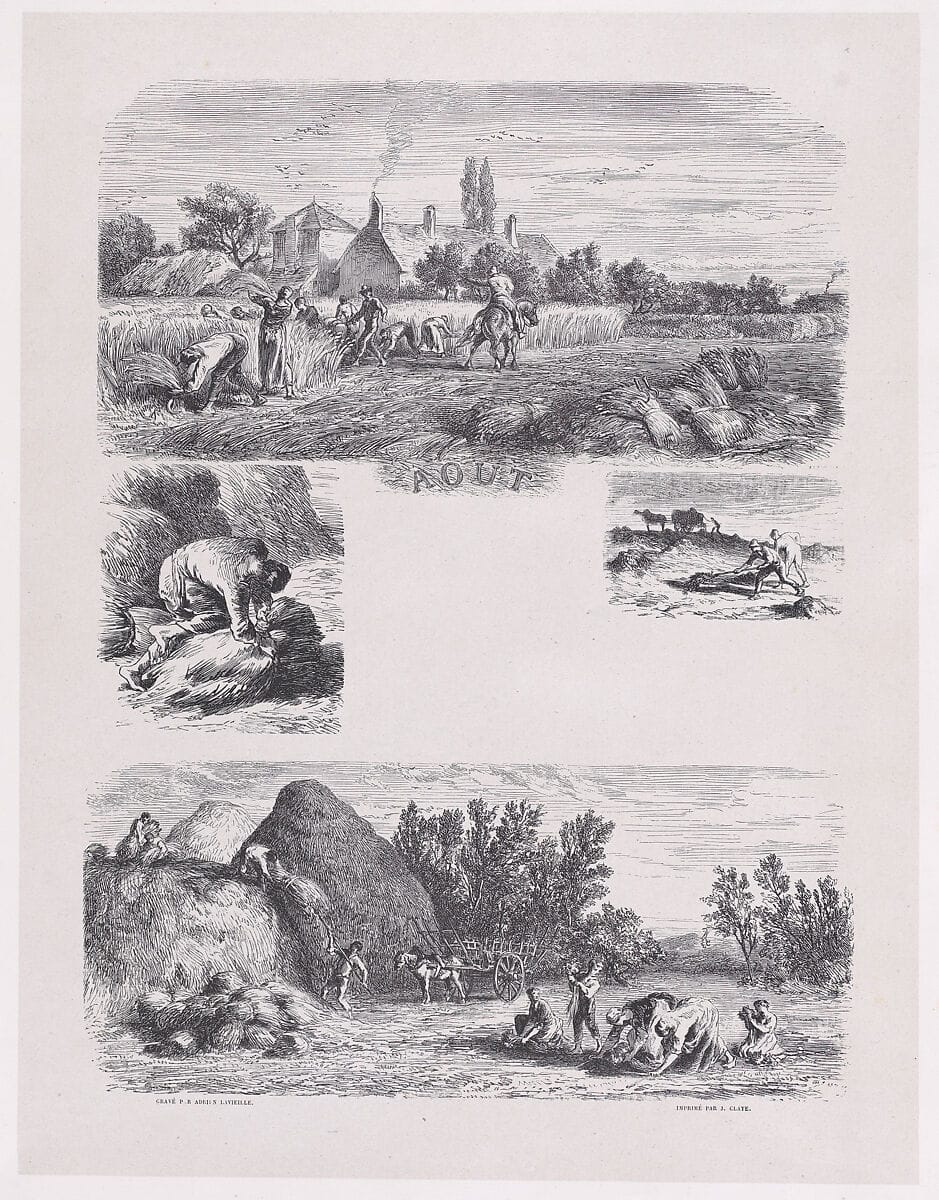Issue 46: Is Being Well Read Actually a Thing? Pt III: The Well-Read Archetypes
On being well read within, without, by mastery

- Part One: Zero to One
- Part Two: The Upper Class of Readers
- Part Three: The Well-Read Archetypes (you are here)
Dear Reader,
Food For Thought
Welcome to the final part of the well-read series! Let's quickly review where we've been so far and what we'll be looking at in the final issue of the series.
In the first part of the series, we took a look at statistics collected from the Washington Post about the reading habits of Americans in 2023 – the critical takeaway was that the median American (50th percentile) read less than two books in 2023. We discussed why this is a frog-boiling problem, and why fear of boredom may be the case that Americans read so little. I then suggested a zero to one strategy that could be used to bring the average reader to reading one book a month, or twelve books in a year, or ten more books than are currently being read.
In the second part of the series, we discussed an uniquely interesting insight from the above dataset – that readers seemed to subconsciously congeal into three "classes" of readers, quite similar to the stratifications of upper, middle, and lower classes in society. Then I introduced the concepts of book inertia and book density, how to move up to the reader class chain with consistency, and how inertia can prevent burnout.
In this final issue of the well-read series, I'd like to discuss the topic of being well-read itself. Up until now, I've been evasive in defining what I believe are the necessary prerequisites to becoming a well-read individual. Even as I write this newsletter, my definition of being well-read is in a liquid, evolving state. Being well-read is an abstract place with no acute measurement tools, a godhead for readers to chase after, than to actually consistently be. Therefore, any simple definition falls flat.
Instead, I think there are (at least) three entirely defensible definitions of being a well-read person. These are:
- Well Read Within a Topic
- Well Read Without a Topic
- Well Read by Mastery
Let's go over these one by one.
Well-Read Within a Topic
To become well-read within a topic, a person sets out to consume as much as they can about a particular field or subfield of study. This person will seek to learn all available aspects of their topic of study, and does not shy away from delving uncomfortably deep into mastery over their choice.
Two signs of a well-read person within a topic:
- The ability to play devil's advocate for any argument within their topic. This is a sign that they have not only voraciously read books that affirm their cognitive biases, but they also sought out the best literature that actively disagree with their world view.
- They will be able to summon a mind map anywhere and any time about their topic. They seem to have spatial understanding of their topic and have a deep historical knowledge as to why things are, and perhaps more importantly, why other things aren't.
A focus into a singular body of study for years with deliberate practice can create a person who is well-read within a topic.
Obsession paired with notation.
Well-Read Without a Topic
To become well-read without a topic is in some ways opposite to being well-read within a topic but there are similarities. The main motivation of being well read without a topic is to chase curiosity wherever it leads you, without any form of judgement attached.
Signs of a well-read person without a topic:
- Survey knowledge of many fields. Able to reference trivia at the drop of a hat, conversationally fluent with different experts in many rooms.
- Able to transfer learnings from one field and apply them directly to another. Willing to question things with the premise that all knowledge is ever-changing and propositional.
- Can be found in multiple sections of a bookstore, creating journeyman level knowledge in multiple fields of study.
Liberal arts degrees are an example of becoming well read without a topic, taking as many opportunities available to act on curiosity. The final state of a person well-read without a topic is the archetypal Renaissance man.
Well-Read By Mastery
To be well-read by mastery is to have the ability to not shy away from any difficult book, to have a firm grasp on the underlying skill of reading and remembering information that lies within a library of books.
Signs of a well-read person by mastery include:
- A highly retentive memory and usage of spaced repetition techniques. An ability to analyze an authors' arguments objectively and derive new insights from any book.
- The ability to grab any book off the shelf in a library and conquer it – be it classics, theoretical, old, new, etc.
A person well-read by mastery will have likely read less books than the other two categories, and is likely has the most "raw talent" of the well read archetypes.
What Am I?
If my reading practice were split from a whole into percentages of the above categories, I am roughly 65% well-read without, 25% well-read within (computer science & philosophy topic driven) and 10% well-read by mastery (there are a number of books in the English corpus I haven't tackled due to their complexity – not to mention all the great books in other languages!
Conclusion
Wow! What a series! I think we covered a lot of ground, and hopefully these issues will inspire you to pick up (or deepen) your relationship with reading in 2024.
To wrap up this series, I'll leave you with a quote from Kevin Kelly. It's simple, but it really summarizes the point of what reading is good for.
To be remarkable, read books.
-- Excellent Advice for Living: Wisdom I Wish I'd Known Earlier (affl. link)
Ye Olde Newsstand - Weekly Updates

weekly media dump!
Thanks for reading, and see you next Sunday!
ars longa, vita brevis,
Bram





